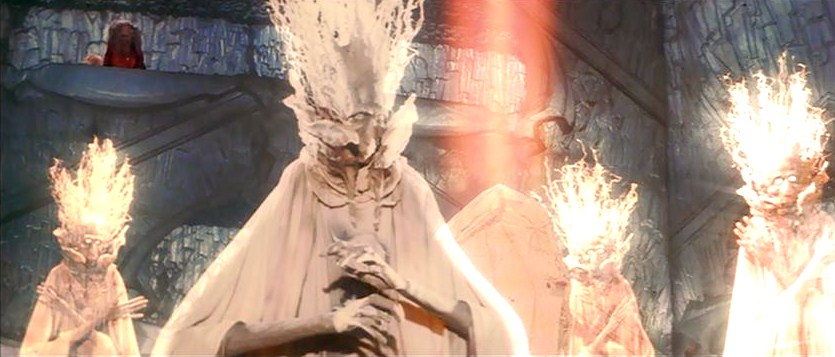Image: Even the Urskeks knew when it was time to leave.
Sunday afternoon I turned on The Dark Crystal for my annual re-watch, a New Year’s tradition of mine. As I was sorting through old mail and generally cleaning house, something odd happened:
I turned it off midway through.
My feelings about this beautiful, imaginative film have evolved over the past few years. I was deeply invested in this film not too long ago. Yet after my disillusionment with the Henson Company’s prequel writing contest in 2013, I started taking a more critical look at it.
I typically don’t do this to movies. Books, including both prose and graphic novels, I can engage in with some distance, which allows me to tease apart a story more easily. Yet movies have always been visceral, and I’m usually too emotionally involved with the visuals to properly engage them.
But The Dark Crystal meant a lot to me, and I had to figure out why. The writer in me had to know whether it was the storytelling or the production design that drew me to it.
Well, here’s what I found.

